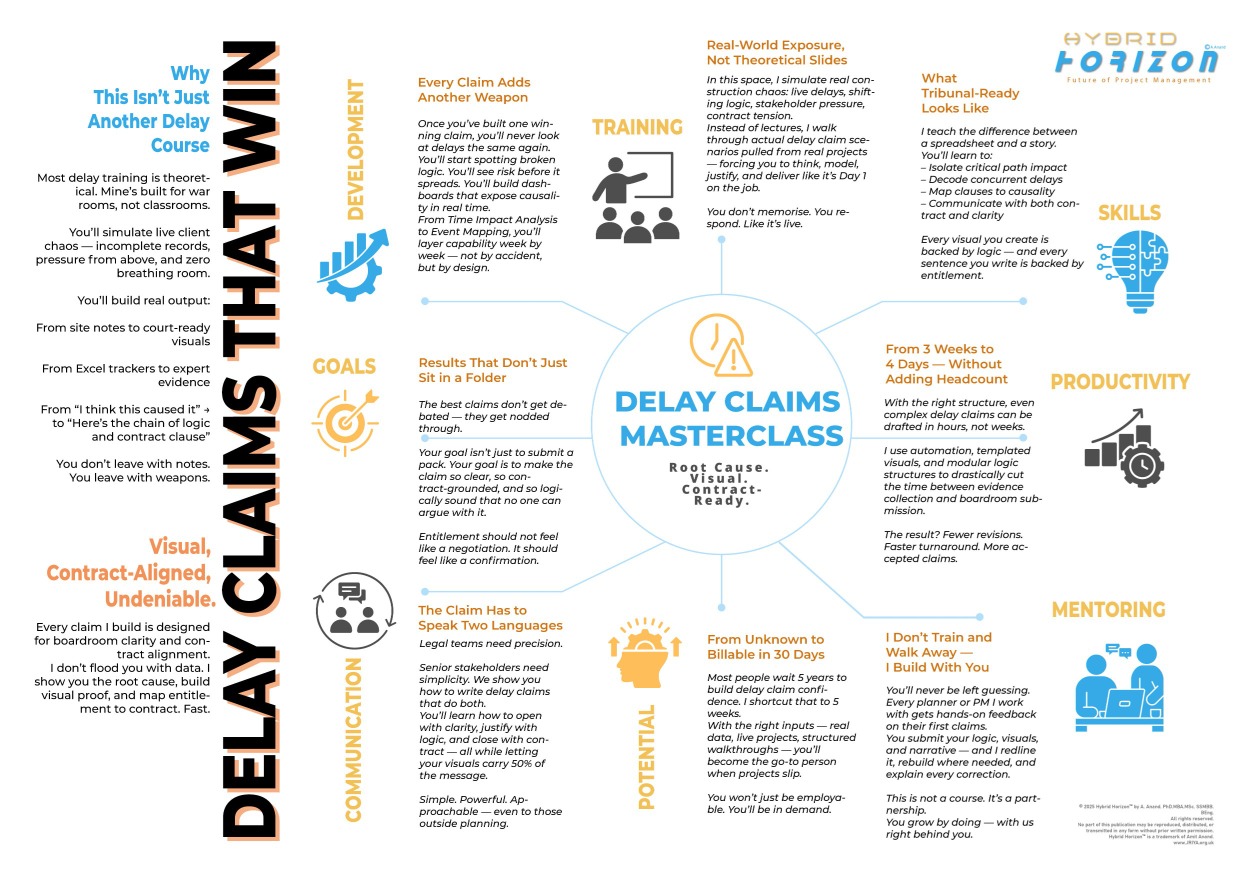There are no items in your cart
Add More
Add More
| Item Details | Price | ||
|---|---|---|---|
From Spreadsheet to Success: The Power of Visual Evidence and Clear Argumentation
Mon Jul 14, 2025
In the high-stakes world of project management and construction, delay claims are a common occurrence. However, the path to a successful delay claim isn't always clear. Traditional delay training often focuses on theoretical aspects, which can leave professionals unprepared for the practical demands and high-pressure scenarios they'll face. A delay claim presented as a mere spreadsheet is unlikely to succeed. Instead, it requires compelling visual evidence, contractual substantiation, and clear argumentation. This blog post will guide you on how to develop robust, tribunal-ready claims that are irrefutable.
Conventional delay training often emphasizes theory over practice. While understanding the theory is important, it's not enough to win a complex delay claim. Professionals need practical, hands-on experience to build persuasive arguments and present them effectively.
So, how can you quickly become a proficient delay analyst, even without formal legal training? The key lies in adopting a structured approach that prioritizes:
One of the key challenges in delay claims is turning complex data into compelling visual evidence. This involves:
Not all delays are created equal. It's crucial to distinguish between excusable and non-excusable delays, and to establish indisputable entitlement. This requires a thorough understanding of the contract and the specific circumstances surrounding the delay.
For those looking for an accelerated approach to developing superior claims, the Delay Claims Masterclass offers a practical, hands-on method focused on building and winning through strategic design. This masterclass emphasizes:
In the realm of delay analysis, confidence is essential, especially when engaging in boardroom discussions. By mastering the principles outlined above, you can cultivate the confidence needed to present your claims effectively and achieve a successful outcome.
Delay claims don't have to be complex and time-consuming. By adopting a structured, practical approach, you can develop robust, tribunal-ready claims that are irrefutable. Focus on clarity, defensibility, and strategic presentation, and you'll be well on your way to winning those critical claims.


{{A K Anand}}
A K Anand is a consultant in construction claims, project management and the creator of the Delay Claims Masterclass, helping professionals build irrefutable, tribunal-ready claims.